The pressure to make the first page of my new Panobook count… 😰

The pressure to make the first page of my new Panobook count… 😰

I tried to take a standard photo of Booj but he insisted on the selfie!
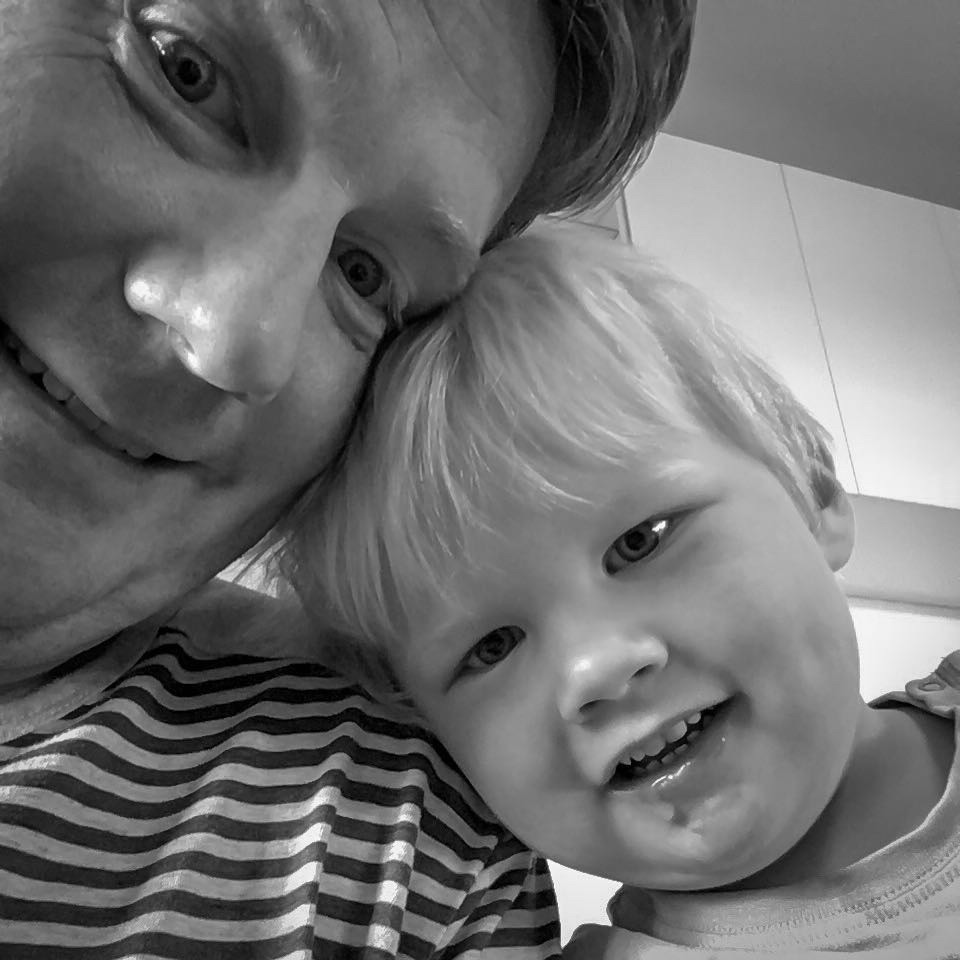
I’m curious how many micro.blog users know one another in real life? Is that a thing?
When a camel thinks your hairy leg is a salt lick. Goober calf.
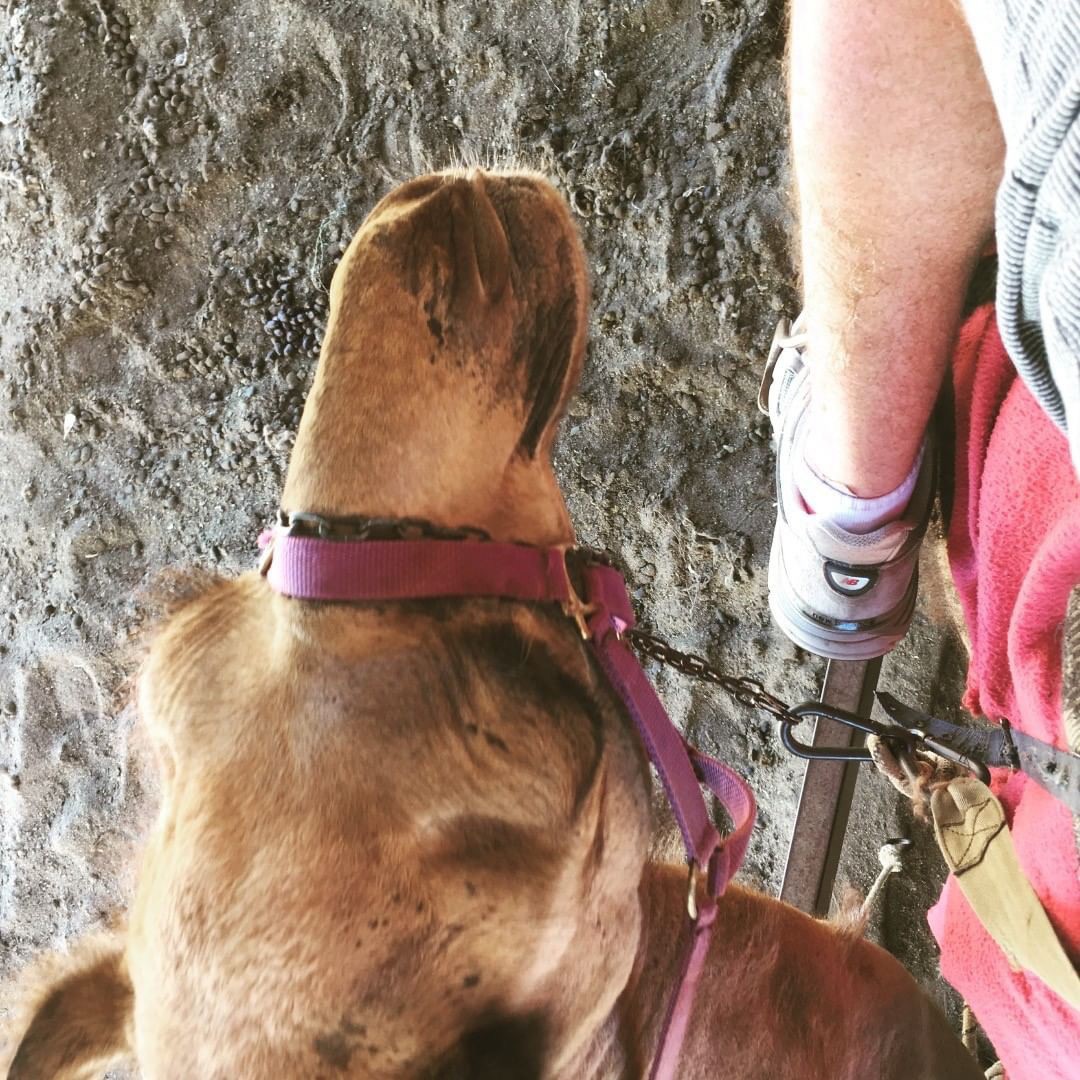
I recently bought a 3-pack of Google Wifi devices to upgrade improve my failing home WiFi. After installing and using for a while, I have some thoughts.
For months my home WiFi has been less than satisfactory. Dropouts, slow connections, complete failures to connect, router reboots required, and so on.
I have a slightly more complicated than average setup but it’s nothing so extreme that I should have had such annoying problems. I don’t live in an area with a lot of competition for WiFi spectrum and my hardware is all of the non-cheap variety.
I have tried different configurations from using my ISP provided D-Link DVA-2800 (the worst modem/router I have used in my life) as a single WiFi router, then in conjunction with the device I have used constantly for a number of years — my Airport Extreme ac (the tower one). I have variously extended this with an Ethernet backhaul to a second, older Apple Time Capsule (the one that looks like a Mac Mini) and I have tried an approach where the D-Link has operated in bridge mode with the Airports acting as the router.
No approach has been that great, and none have solved the problems I outlined earlier.
The constant problems I faced with all of these different approaches were:
Given all these problems, I decided it was time for a change. Many of the podcasts I listen to feature ads for the Eero mesh WiFi product. This advertising is useless to me as far as selling me their product because they don’t retail in Australia. It did, however, get me interested in the idea of a mesh network, and helped push me into the arms of Eero’s competitor1.
In Australia, the best option seemed to be the Google Wifi 3-pack. I pulled out my wallet and bought a pack for AU$399. Not cheap but my hope was that lowering my blood pressure with less frustration made it a good investment.
In my case, the setup was not quite as simple as Google makes it out to be. This may be my own fault, because I probably overthink things, to be honest. I knew I still needed a router to transfer my NBN Fibre-to-the-Node (and then copper to the house) connection. This meant I had to keep my horrible D-Link to act as the modem. With my Apple Airport, I had the D-Link set to bridge mode and the Airport took on the task of the primary router and DHCP server. This obviated the need to ever deal with the D-Link software.
I went with this same setup with Google Wifi, but no success. It couldn’t establish a connection to my ISP through DHCP, as required.
To resolve this problem, I had to go back to my D-Link and take it out of bridge mode. I had to have it act as both a modem and a router (but disable its WiFi) and have it farm an IP address to the primary Google Wifi point. This is frustrating because it creates a “double-NAT” situation that seems unavoidable. Two devices, both creating a pool of IP addresses. The Airport wins here, as it was able to manage the DHCP connection with my ISP just fine.
So now with this configuration my D-Link establishes the Internet connection while Google Wifi manages the internal WiFi and ethernet network. From this point it was smooth sailing. The Google Wifi app is quite good, apart from feeling very out of place on iOS due to its Android Material design aesthetic. It’s also weird to have to rely on a mobile app with no way of accessing the Wifi units through a computer. Finally, no iPad app - just a scaled iPhone app. Come on, Google, you can do better than that. While the Airport Utility looked prettier, Google Wifi gave me more control.
The network quality that Google Wifi delivers is excellent. I’ve been able to use ethernet to create a wired backhaul to the second device that sits near our TV, and I have some strategically placed switches to extend my ethernet network for fixed devices. That each Google point only has a single ethernet jack is a little disappointing, but not really surprising given the typical home market it is aiming at. I have the third device in my bedroom. This one is not using Ethernet backhaul, but leverages the ‘mesh’ approach that is the whole point of the system anyway.
Since installation the WiFi throughout (and outside) the house has been fast and flawless. I am mostly able to connect to a 5GHz ac signal and roaming happens silently and easily. I don’t notice connections slowing down or failing. Whenever and wherever I open a MacBook it establishes an instant connection, whereas it used to take ages and would still sometimes fail.
A Netspot signal-to-noise quality comparison may indicate I haven’t experienced much change in overall signal quality with the change to Google Wifi, other than the Google Wifi result perhaps being a little ‘smoother’ and without a single hotspot near the router.
But it’s the lack of problems with handoffs and roaming that are the real story here. That and the fact that I can more often use a 5GHz ac connection that was previously limited to inside my study.
[caption id=“attachment_404” align=“alignnone” width=“2007”] Signal to noise heatmap with two Apple Airports[/caption]
Signal to noise heatmap with two Apple Airports[/caption]
[caption id=“attachment_405” align=“alignnone” width=“1642”] Signal to noise heatmap with Google Wifi[/caption]
Signal to noise heatmap with Google Wifi[/caption]
You will have to excuse my variation in measuring points - this was not an entirely scientific method.
Overall, I’m happy with the purchase. Once I got everything set up and working correctly it’s been a hassle-free experience. The initial experience, though, was sketchy.
I’d love to know if anybody has had success having a Google Wifi setup connect to an NBN connection directly through a bridged modem like my Apple Airport could. While it isn’t really a problem, the knowledge that I have a non-optimal configuration with two NAT devices operating is annoying to me.
Would I recommend this product to others? Yes, absolutely. I also think that most other people would have a much more successful plug and play experience than me. This is the curse of the tinkerer.
It’s been fun to find some great new (to me) voices on micro.blog. My RSS reader has a bunch of new blog subscriptions to track. It’s almost like the great days of Google Reader.
I’ve updated my /now page
A great tip in here about using Workflow to create a site specific brower for iOS apps. Now I have Instagram for iPad! Using Workflow as a Site-Specific Browser - Initial Charge
Took the kid and Sensei Wu for a coffee today. #latergram
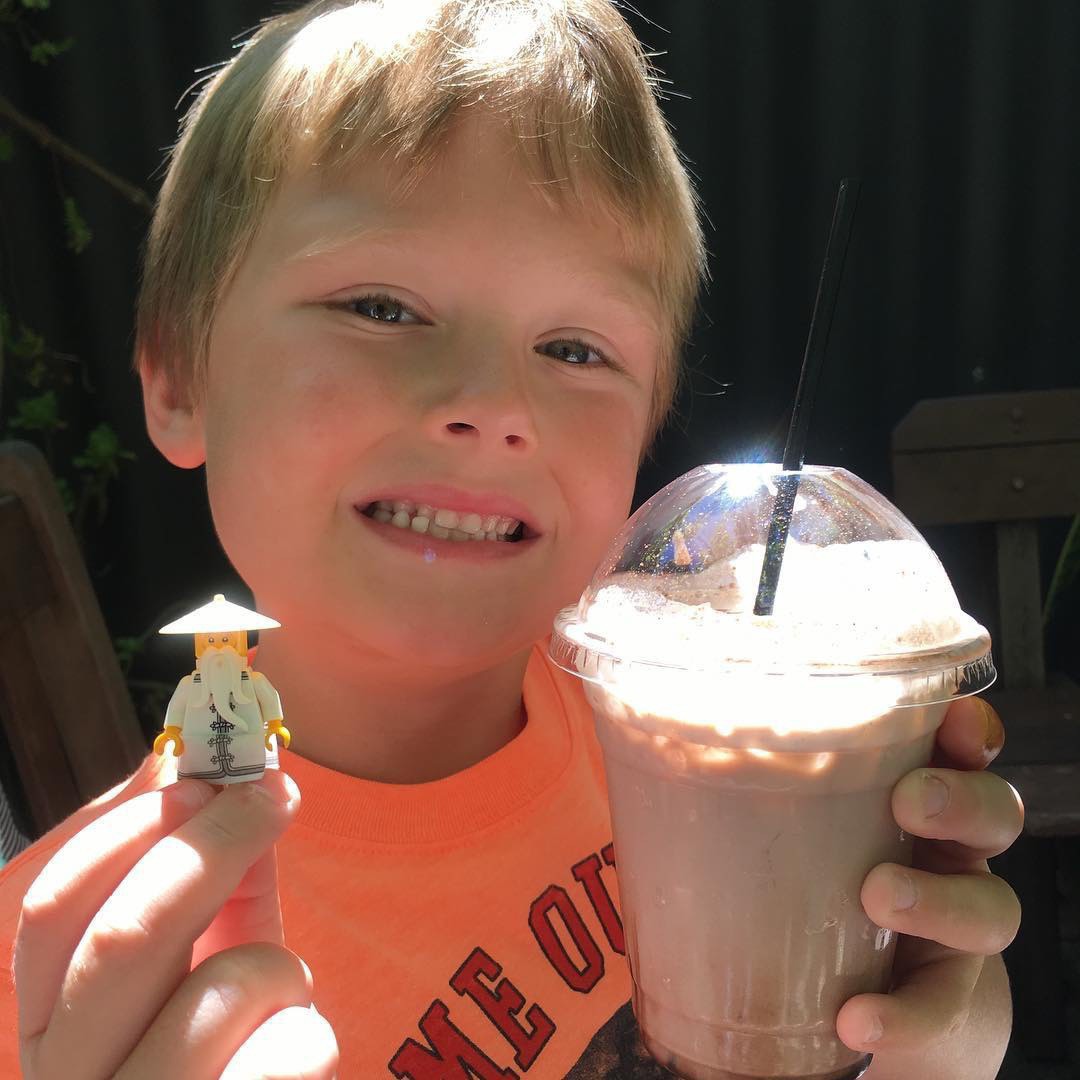
Okay, I’m giving Drafts another chance in my workflow. Maybe it will stick this time…
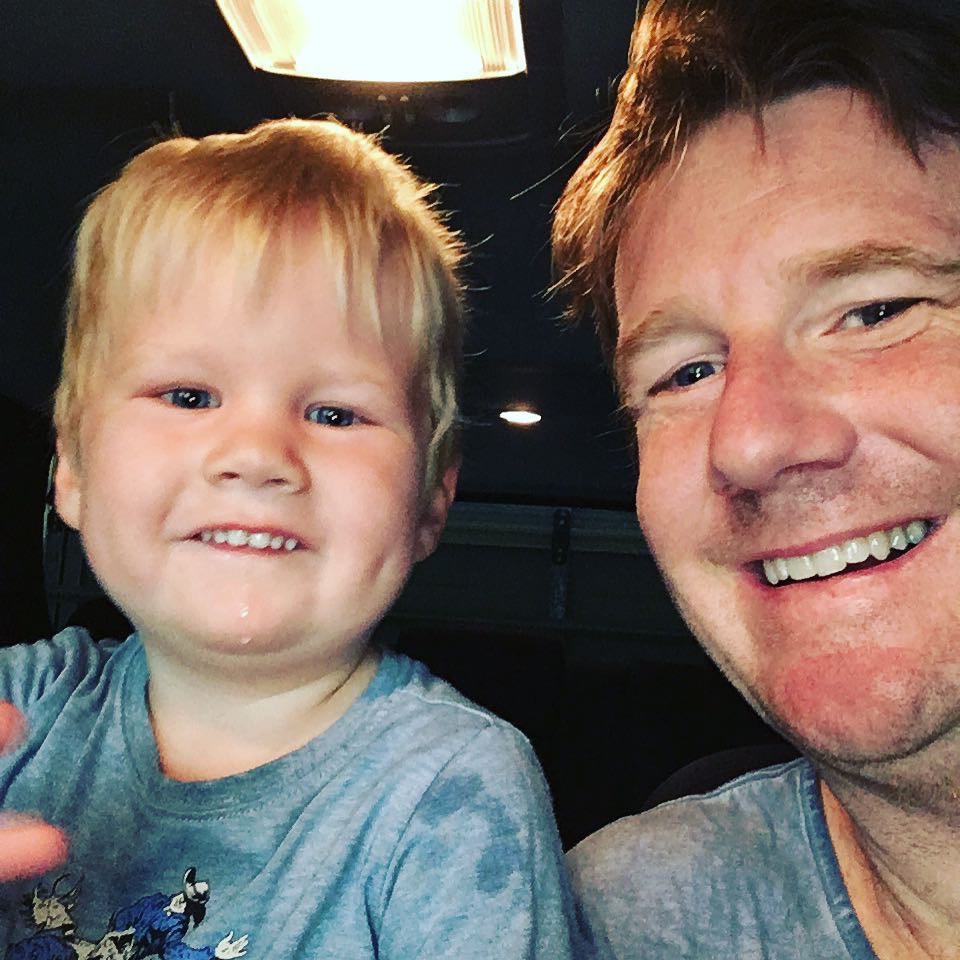
Lunch at the Lobster Shack.
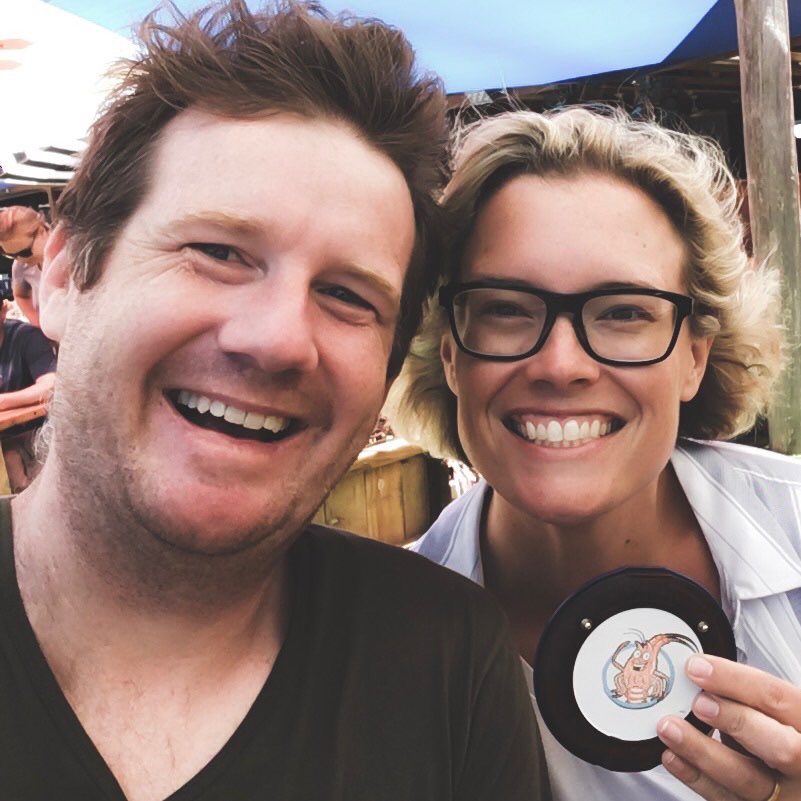
Having a slow boxing day

Not a bad Christmas when you can finish the evening with views liked this.

Sudoku has become my holiday pastime of choice after it was explained to me how to play. Last summer was crosswords; now it’s all about the numbers.
@cdevroe Thanks for the link reference. Does us both remembering Adam Curry and Senseo (and maybe Roger Smalls?) mean we have to go sit in the old man corner together?
With a hat tip to Gabe Weatherhead at MacDrifter who put together his list of favourite Mac applications for 2017, I am following suit.
Third party apps are what make a platform great. Despite the macOS ecosystem perhaps not being as vibrant as it once was, it is still served by a wonderful cohort of professional and hard-working developers. Even though I’ve bought their apps, I sometimes feel I owe them more because using their software is what makes using my Mac both fun and productive.
There’s a long tail of apps I use beyond those included in this list. Yet these I have detailed below are those I used extensively in 2017 and that I value and enjoy. These are the apps that I would most miss if they suddenly went away.
Online security is no joke. It’s easy to dismiss password hygiene as tin-foil hat material, but when you think how much of our lives are conducted online, I don’t want a veneer of security — I want an ironclad guarantee. 1Password guarantees I can have unique complex passwords for every site that I maintain an account. I have no idea what any of these passwords are. But I do know my password to unlock 1Password. After that, it’s nothing but ⌘-\ to long me in anywhere.
1Password for Families | US$4.99 per month
I’ve waxed lyrical about OmniFocus before. Without this app there is no way I would be able to keep all my balls in the air. As much as parts of its design frustrate me, and the pace of its development is glacial, it works. Every day it delivers value by making my life easier. There are sexier to-do apps out there, but OmniFocus is rock solid.
OmniFocus Pro | US$79.99
My wife doesn’t have Launchbar installed on her MacBook. So when I try to use it, I feel lost. After years of use Launchbar feels an extension of the operating system and is completely engrained in my muscle memory. I switched to Launchbar years ago after Quicksilver became unstable and I’ve stayed ever since. I know others swear by Alfred, but I’m definitely a Launchbar guy.
Launchbar | US$29
I love this app even though I do have to work hard to find a truly worthwhile use for it. I definitely underuse Bear, but I really like it. For the emotional response, I’m keeping it in my list. But there is still a nagging feeling that between Apple Notes, Ulysses and DevonThink Pro, I really shouldn’t need this app. But it is really nice.
Bear | US$14.99 per year
My key authoring application in which I write blog posts, work reports and other bits and pieces. For report writing as part of my day job Ulysses has this year supplanted Scrivener. For my blogging, Ulysses has withstood challenges from Bear and MarsEdit. It is a wonderful writing app and I enjoy that I have access to it through my Setapp subscription. If I didn’t have Setapp, I would subscribe to Ulysses directly without a moment’s hesitation.
Ulysses | AU$54.99 per year
The archive. The place I keep all my reference, research and archival material. I don’t use it for all that it can do; for instance I don’t create documents in DEVONthink despite it having the ability to do so. But for archiving, storing and searching, nothing beats it.
DEVONthink Pro | AU$104.13
This is a cross-platform Java app, so it’s ugly as sin. It’s also about the only share market application available for Mac. Fortunately it works well and gives me all the information I need to track my portfolio.
StockMarketEye | US$99.95
I have never given up on RSS, even through the dark days after the Google Reader shutdown. I love the independent web and follow a range of sites religiously. On the Mac Reeder is the best way to do this.
Reeder | US$9.99
PDF Expert has replaced Preview for PDF viewing and editing. Preview’s editing toolbars have always been inscrutable to me whereas PDF Expert makes sense. The bugginess that was introduced to the PDF engine in MacOS Sierra was the final nail in the coffin and ensured my switch to PDF Expert.
PDF Expert | US$65.99
While the native Mac calendar app has improved, I still prefer having more power and flexibility to manage my calendars. While Fantastical always gets the glory as the sexy third party calendar option, BusyCal blends in and does the job quietly and effectively. I use this app daily. Its ability to save and restore different calendar sets give me helpful insights into my scheduled life.
BusyCal | US$49.99
I’ve had a play with MarsEdit, but I don’t think that it is right for me. I’ve written a quick overview of my experience.
I am writing this post in MarsEdit. MarsEdit is an app that I have always wanted to use, but never really have found a place for it. Now, with the new version released I thought I’d download it and give it a spin as part of the 14-day trial developer Daniel Jakult offers.
Recently I have been writing blog entries in Ulysses, which is great in that it uses iCloud for syncing and has clients for the Mac and iOS. So writing can be done anywhere. It also has a Wordpress publishing engine so I don’t need to mess around to get my words on the web. Finally, Ulysses uses a flavour of Markdown which I am becoming much more proficient in using. Of course, I also already have a licence for Ulysses as part of my Setapp subscription.
MarsEdit is a much more traditional blogging platform. It defaults to rich text, it is Mac only, and it is more ‘feature rich’ than Ulysses. It offers a two-way connection to Wordpress, meaning it can download an archive blog posts in addition to simply publishing which is the limit of the Ulysses offering. With my current workflow, if I need to make an edit to a published post I have to go to Wordpress on the web and make the change. From that point on, my local copy on Ulysses is out of date; there is no concept of syncing - it just publishes. MarsEdit is fully sync-compliant so I can fix those pesky mistakes and maintain a single source of truth.
I do wish it had an iOS application, though. I imagine its code base is too entrenched in the Mac world to easily transition it to iOS, but it would be great to have a synced solution. This is where Ulysses excels - I can pick up the writing from where I left off from any device.
The other thing is typing in rich text. While ‘normal’ people prefer this (think users of Microsoft Word, which is rich text throughout) for blogging I do tend to prefer using plain text and Markdown. The code is apparent, I know what is happening, and it is easy to read. My experience with rich text transitions to HTML is that things go wonky. Of course, MarsEdit can edit in plain text and apply a Markdown filter, but it doesn’t seem like its natural mode of operation.
As I write this, I have been stumped as to how to add a footnote without resorting to pure HTML. In Ulysses with Markdown, this is an easy thing to do. In MarsEdit, it’s not apparent.
Using MarsEdit for this post has been an interesting adventure, but at this stage and for the type of blogging I do, I don’t think this app is for me.